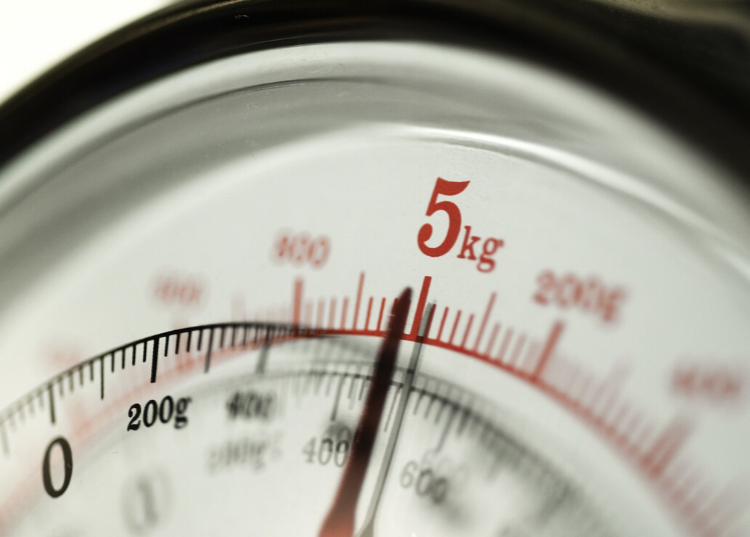 Image Designed by Freepik
Image Designed by Freepik
Factors Affecting Accuracy of Weighing Scale
Weighing scales are an inseparable part of industrial operations. One of the pre-requisites for businesses is to have a weighing scale that is accurate as well as precise. Active Scales have been delivering quality weighing scales since 1996. With the help of ultra-modern equipment, we produce the most robust and accurate weighing scales that satisfy your business’s all weighing needs.
You can choose from various industrial scales, batching scales as well as laboratory scales that we offer. However, when businesses own weighing scales, they very often wonder about how to maintain the accuracy of these scales for a longer period. There are several factors which significantly affect weighing scales’ accuracy. So here we enlist and elaborate some of those factors to help you in making an informed decision while handling weighing scales.
1. Load Cell Accuracy
Load cells are part of weighing scales which measures mechanical force i.e., the weight of the object. Most modern scales are consists of load cells for weight measurement. Load cells have gained much popularity and find their application in a wide variety of scales due to their capability to obtain an accurate reading. As weight measurement depends on the functioning of load cell, any obstruction in its working produces inaccurate weighing results.
However, to understand the exact cause of malfunctioning you have to consider the following parameters
•Response Time:
It is time span load cell requires between two consecutive readings to produce accurate weighing results. If a scale is subjected to repeated measurements without considering its response time, it causes scale to produce inaccurate readings.
•Non-repeatability:
Variation in results when the load cell is subjected to the same load repeatedly.
•Nonlinearity:
It corresponds to the maximum permissible deviation of a load cell’s calibration curve from a straight line, indicated between zero weight and maximum rated capacity.
•Hysteresis:
It corresponds to the difference in the scale output reading when the same load is measured twice.
2. Interference
Load cells are transducers which convert mechanical force (in this case weight of any object) into an output electrical signal, which we can read or record. Therefore, any interference to this signal can produce inaccurate results.
•Radio Frequency Interference (RFI) and Electromechanical Interference (EMI):
RFI and EMI create electrical noise that can create disturbances in load cell signals. These disturbances lead to inaccurate output from the load cell.
•Temperature:
Temperature fluctuations can cause weighing scales to produce weighing errors. However, most load cells are compensated for temperature changes. But if your scale is subjected to large temperature fluctuations, it increases wire resistance while causing a voltage to drop. It ultimately results in scale showing inaccurate weighing results.
3. Other factors
Apart from the above mentioned electrical factors, there are few other factors which affect weighing scale accuracy as well as repeatability.
•Shock loading:
Many industries use industrial scales for weighing heavy objects. However, when such heavy workpieces are dropped on a weighing system, it damages the scale. Though higher-capacity load cells can withstand such shock loading it eventually degrades the system\'s resolution. Therefore, to maintain weighing scales accuracy for a longer period of time you must avoid shock loading.
•Vibration:
If your weighing scale is placed in the vicinity of other machinery or process equipment, then load cells tend to get affected by mechanical vibrations from this equipment. Sensitive load cells detect these vibrations and treat them as an additional force which results in the inaccurate weighing output. You can reduce these disturbances by isolating the weighing system from other machinery or keep weighing scale as far as possible from that equipment.
•Pressure differentials:
A pressure differential creates weighing errors by applying unwanted forces to the weighing system. You can calibrate your weighing scale to the pressurized floor’s constant pressure level to avoid weighing error created by pressure differential. If not, you can install a weighing scale at a place where pressure is comparatively constant.
•Slope:
For scales to produce accurate results, weight must be applied parallel to the force of gravity. Therefore, it is necessary to place a weighing scale on a flat surface.
•Wind loading:
It especially affects outdoor weighing equipment. Additionally, airflow from open doors, window or air vents also interferes with scale’s weighing accuracy. Similar to sensing vibrations, sensitive load cells sense the crosswind on a weigh vessel that exerts forces on the load cells causing the leeward cells to sense a heavier load. Therefore to avoid causing wind loading you can block weighing scale from such wind streams or divert wind currents.
•Magnets:
Weighing scales usually have magnets as a part of the weighing system. Placing other strong industrial magnets near to your weighing scales can potentially interfere with scale’s weighing function producing inaccurate results.
Furthermore, it may be impossible for you to completely eliminate any of these interfering factors. But, being aware of these factors helps you in making informed decisions. However, apart from these factors if you find your weighing scale have some other issues you can contact weighing scale repair company for further information and repair.
 Image Designed by Freepik
Image Designed by Freepik